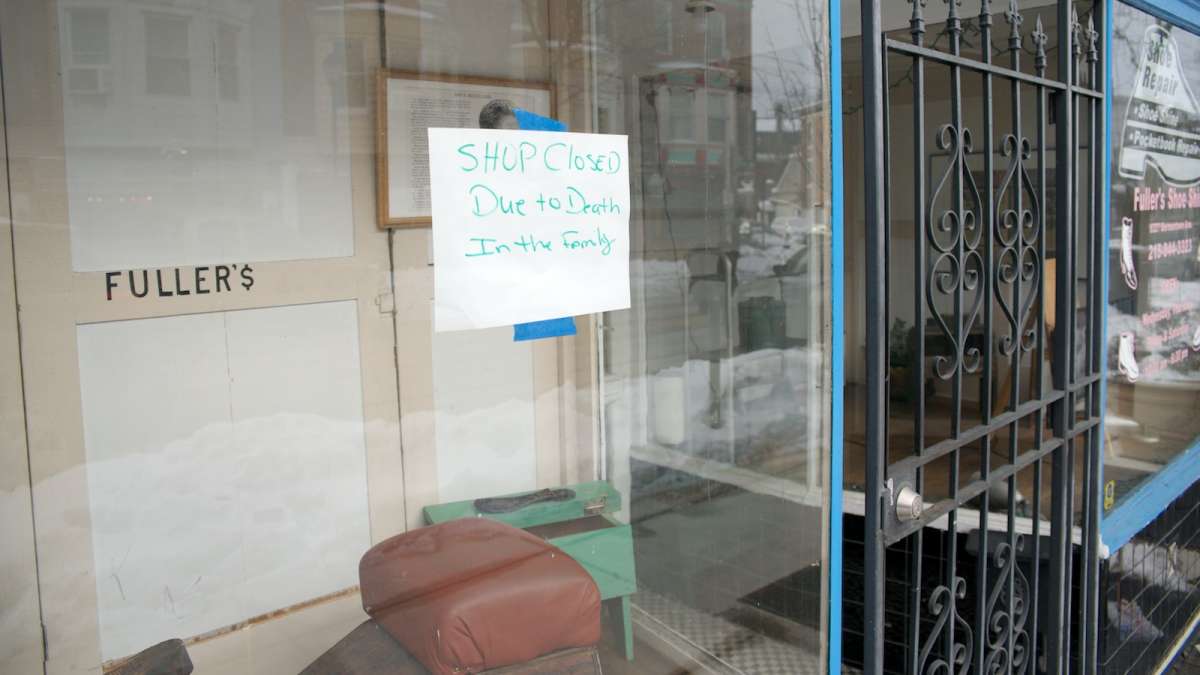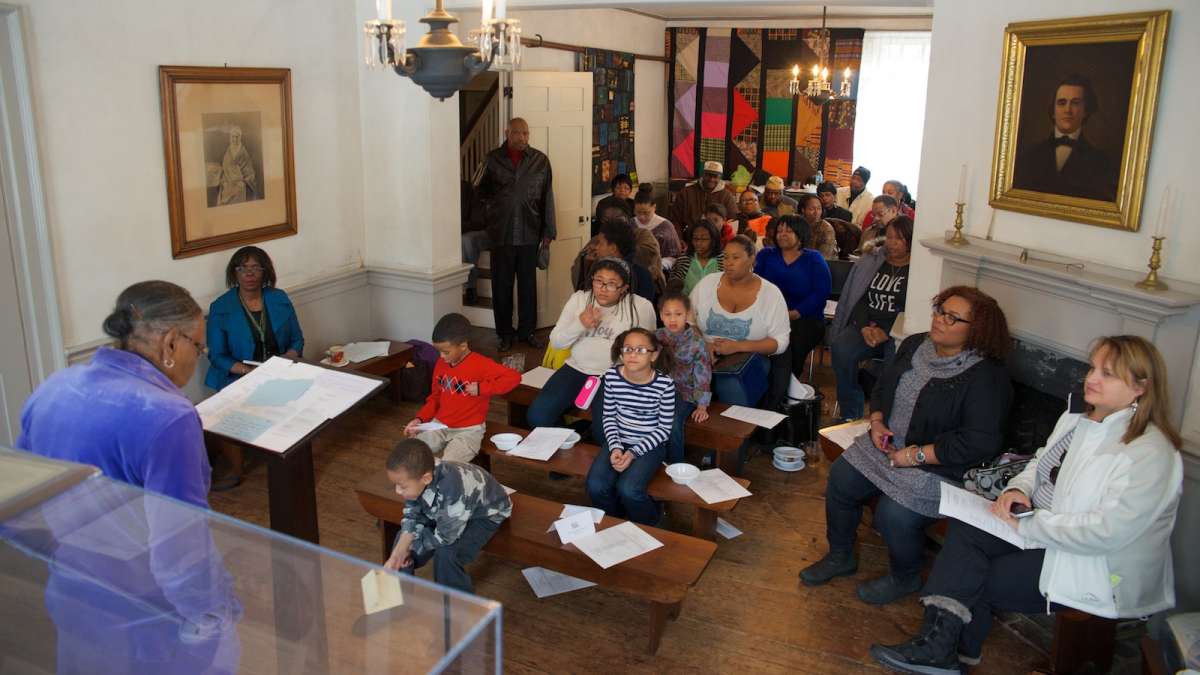Obama’s checkbook ambassadors: Business as usual
-

-

-

-

-

-

-

-

At the event, four students read self-written poetry. Nathan Legette, a William Penn Charter School kindergartner, was among them. (Bas Slabbers/for NewsWorks)
-

-

-

-

Barack Obama vowed to change Washington, but apparently some Washington habits are hard to break. Like all his recent predecessors – actually, worse than his recent predecessors – he has sold lots of U.S. ambassadorships to fundraisers who don’t know squat about foreign policy.
They tapped their friends and their own pockets (in a practice known as “bundling”), and pump those big bucks into Obama’s campaigns, and as a reward, they got plum embassy posts. It’s amazing what money can buy, in the absence of real qualifications.
That’s how businessman Louis Susman became our ambassador in London; as an Obama bundler (at least $500,000), he was nicknamed “the Hoover vacuum.” That’s how TV executive Charles Rivkin ($800,000) landed in Paris. And how music executive Nicole Avant ($800,000) got the embassy in the Bahamas. And how HBO veep James Costos ($500,000) got Spain. And how hotel executive George Tsunis ($1.3 million) recently got nominated for Norway. And how political operative Noah Mamet ($500,000) got picked for Argentina. And how soap opera producer Colleen Bell ($800,000) got the nod for Hungary.
This cheesy tradition is back in the news, thanks to the recent Tsnuis, Mamet, and Bell confirmation hearings. You would think that nominees with no foreign policy creds would, at the very least, bone up on the particulars of their new postings before facing a panel of senators – but no.
When Bell was specifically asked how she as ambassador would address Hungary’s growing human rights abuses, she responded with boilerplate: “Well, we have our strategic interests, in terms of what are our key priorities in Hungary, I think our key priorities are to improve upon, as I mentioned, the security relationship and also the law enforcement and to promote business opportunities, increase trade…to continue working together on the cause of human rights around the world, to build that side of our relationship…” (Which is what we would expect from the producer of TV’s The Bold and the Beautiful.)
When Mamet was asked to discuss the issues that impact relations between America and Argentina, he said that he has never been to Argentina (“I haven’t had the opportunity yet to be there”), and that he doesn’t speak Spanish. And when Tsunis was asked to ruminate about Norway, he said that he has never been to Norway. But he did try to discuss Norway’s political climate. He suggsted, for instance, that Norway’s Progress Party was out on the “fringe” – which prompted the senators to point out that the Progress Party was actually part of Norway’s governing coalition. Which prompted Tsunis to say, “You know what? I stand corrected.”
Then you have embarrassments like Cynthia Stroum, a venture capitalist and $500,000 Obama bundler who was awarded Luxembourg – only to quit in the wake of a scathing report from the Inspector General’s Office, which denounced her management style as “aggressive, bullying, hostile, and intimidating.” Several underlings had to spend several days shopping for an unmbrella for her patio – stuff like that. She was so bad that some embassy staffers volunteered for postings in Iraq and Afghanistan, just to get away from her.
Granted, Obama has been hewing to an old practice. The longstanding “70-30” tradition is that career foreign service officers get 70 percent of the ambassadorships, and that political fundraisers/operatives/hacks get 30 percent. But according to the America Foreign Service Association, Obama’s political allies have been rewarded with 37 percent of those posts during his tenure – and since the start of his second term, the rate has soared to 53 percent. (Bill Clinton and Jimmy Carter, overall, gave only 27 percent of their ambassadorships to political allies. The two Bushes, roughly 30 percent each. Ronald Reagan and Gerald Ford, roughly 38 percent.)
So Obama has been worse than most recent presidents. He never specifically promised to halt the sale of ambassadorships – prior to taking office, he said: “It would be disingenuous for me to suggest that there are not going to be some” – but his team clearly signaled that sales would be limited. Back in 2009, an Obama spokesman said that, with respect to the 70-30 rule, “We will be right on that target.” And, more broadly, another spokesman said in 2009 that Obama intended to reduce “special-interest influence” and to “promote merit-based decision-making.”
Instead, Obama has sold with great frequency. That’s what we expected from the likes of Richard Nixon – who was captured on the Oval Office tapes saying, “Anybody who wants to be an ambassador must at least give $250,000” – but Obama signaled that he would be way less tacky.
And the practice makes us look tacky. In the words of Dennis Jett, a former ambassador and an international relations professor, “What does it say about American leadership andhow we view the rest of the world when a European country sends us their best career diplomat – and we send them a real estate developer?”
——-
Roger Angell, writing in The New Yorker, 51 winters ago: “Today the Times reported the arrival of the first pitchers and catchers at the spring training camps, and the morning was abruptly brightened, as if by the delivery of a seed catalogue.”
Exactly that.
——-
Today is the first day of the ninth year of this blog. To quote an old Irish proverb, “It is a long road that has no turning.”
——-
Follow me on Twitter, @dickpolman1
WHYY is your source for fact-based, in-depth journalism and information. As a nonprofit organization, we rely on financial support from readers like you. Please give today.

